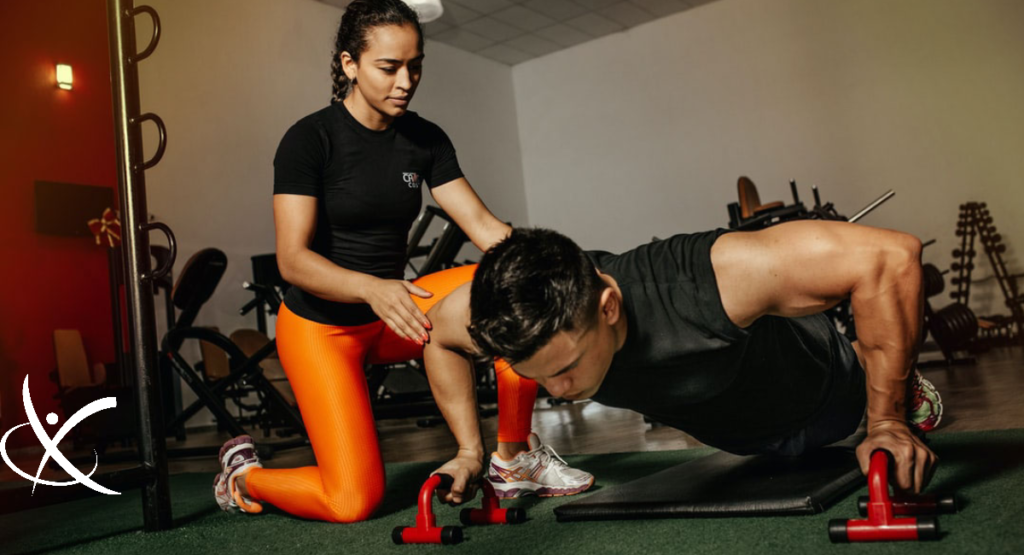Physical Therapist, Coach, or Both?
Finding the Right Fit for You
Before I write my thoughts here, I want you to take a moment and think about that. What has your experience been with physical therapists or coaches in the past? Then, I would like you to read the paragraph below and fill in the blanks with the words coach, coaching, physical therapist, or physical therapy.
In the world of _________, there should be a relationship between a provider and client that harvests trust, empowerment, and an overall sense of health and wellness. A _________ should be able to instruct, teach, lead, improvise, communicate, and implement critical thinking skills on a regular basis. A _________ should be a great listener, observer, and committed to helping their athletes or clients achieve their “end-goals”.
After filling in the blanks, what do you think? I am hoping that many of you read it twice with both coach/coaching and physical therapy/physical therapist, realizing that they all work. If you felt as if you could not, it might be time to look for a new coach or physical therapist.
There are many parts of physical therapy and coaching that intertwine. If we look at the words used to define “coaching” they include: train, give, teach, prompt, process, guide, listen, motivate, advocate, and so forth. These are also things that a physical therapist should provide to their patients.
Coaches and physical therapists both offer insight to help improve the overall potential and well-being of their clients. They should look to assist clients in achieving their full potential and moving forward in injury or performance. They should address their athletes or patients not just as aches or pains or performance goals, but as whole persons while utilizing a biopsychosocial model approach.
Why am I going on and on about the similarities of coaches and physical therapists? This coaching cohort has made me realize that a physical therapist can make a great performance coach if he or she chooses to do so. Yes, this takes time and effort. It takes education and developing a skill-set. However, physical therapists are already adept at establishing rapport, exploring a person, and helping people reach their goals. So, why not move outside of the rehabilitation realm?
I did not want to write this as a shameless plug for our services but it sure may end up sounding that way. I just wanted you all to be aware of how a physical therapist can double as a coach if he or she is well versed in your sport or hobby! Think about this, if you have a PT as a coach, you get the extra benefit of someone knowing how to keep you un-injured. Physical therapists are also well versed in physiology, psychology, body-mechanics and many of the scientific rationales behind coaching philosophies. I’d like to say most of us our listeners and confidants who have your best interests in mind. Doesn’t this sound like a pretty good coach?
I will say that John, Justin, and I are lucky to work on both sides of the physical therapy and coaching spectrum. We work in both modes regularly and feel it is what is best for our clients. You may realize that in a session with any of us, we do not just teach you the simple exercises to “get better”, we often push you to perform better. I guess we often wear both hats, PT and coach!
All of us at Feldman have been coached and have coaching experience. We now choose to work with individuals and athletes across a spectrum. We do not just aim to make pain go away or rehabilitate from surgery, but to take people to their highest requested level of performance. We utilize our skill-sets as physical therapists to help individuals achieve their return to life or sport goals, and our coaching skill-sets to help achieve an athlete’s highest level of performance. Yes, we know we have a different model than other providers, and this is a very reason we love to do BOTH things.
Some words of advice. Having a coach or physical therapist (or any other medical or training professional) who suits your needs is key. Ask for their treatment, training, or coaching philosophies to make sure they are the right fit. Just as you may ditch a hairstylist for doing a bad job, you always find another one, right? Do not let one interaction with a specific individual ruin your perception of a specific profession. Make sure you find someone who takes you from injury rehabilitation and allows you to progress towards sports performance if that is your end-goal!
Have you thought about working with a coach but don’t necessarily know how to find one? Let us help you! If what you are looking for is not in our wheelhouse, we always have options. As always, feel free to contact us with any questions or concerns you may have.
Ashley Witson, PT, DPT
